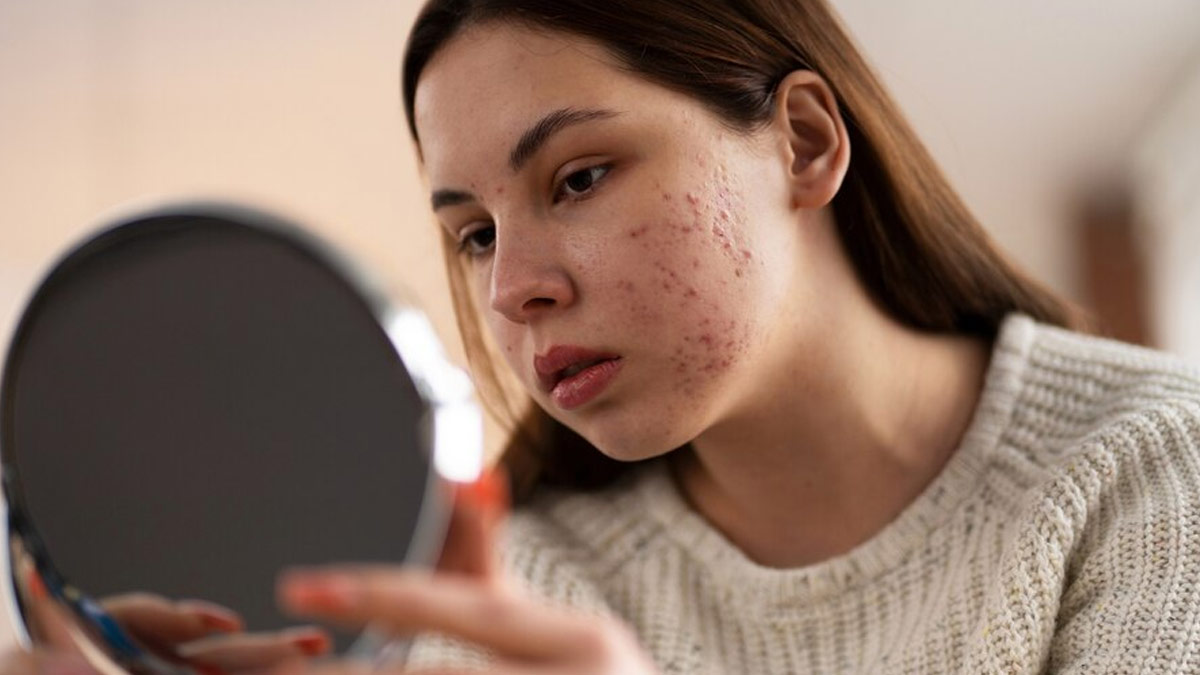
Skincare is a vast and ever-evolving field, filled with tips, tricks, and unfortunately, a fair share of myths and misconceptions. One area where misinformation abounds is in the treatment of acne marks. Acne, a common skin condition affecting millions worldwide, often leaves behind stubborn marks that can be challenging to treat. Let's delve into some of the most prevalent myths surrounding skincare and acne marks and separate fact from fiction with the expertise of Dr Simal Soin, Founder and Chief Dermatologist, AAYNA Clinics and Chief Medical Officer, Clinikally.
Table of Content:-
Myth 1: Acne Marks Will Fade Away on Their Own
Fact: Acne marks especially those which are caused as a result of post inflammatory hyperpigmentation will become lighter over time especially with adequate sun protection. How acne scars such as depressed scars which are of various kinds such as boxcar, rolling and ice pick do not improve with topical applications or with them. They need laser and micro needling treatments to remodel collagen.
Myth 2: Sun Exposure Helps Fade Acne Marks
Fact: Contrary to popular belief, sun exposure does not aid in fading acne marks. In fact, prolonged sun exposure can exacerbate hyperpigmentation and worsen the appearance of acne marks. Dr Simal Soin explains, “UV rays stimulate melanin production, leading to darker pigmentation in affected areas. Additionally, sun damage can hinder the skin's natural healing process and increase the risk of developing wrinkles, fine lines, and skin cancer. Therefore, it's crucial to protect your skin from the sun by wearing sunscreen daily, even on overcast days.”
Also Read: How To Differentiate Between Hormonal Acne And Adult Acne

Myth 3: Scrubbing the Skin Will Remove Acne Marks
Fact: Many people believe that scrubbing the skin vigorously will help fade acne marks by sloughing off dead skin cells. However, abrasive scrubs and harsh exfoliants can cause microtears in the skin, leading to inflammation and potentially worsening acne marks. Instead of abrasive scrubs, opt for gentle exfoliants containing ingredients like alpha hydroxy acids (AHAs) or beta hydroxy acids (BHAs). These chemical exfoliants help to dissolve dead skin cells, promote cell turnover, and improve the overall texture and tone of the skin without causing damage.
Myth 4: Moisturizing Aggravates Acne Marks
Fact: Some individuals with acne-prone skin may avoid moisturizing out of fear that it will worsen their acne marks. However, moisturizing is essential for maintaining the skin's barrier function and preventing dehydration, which can exacerbate acne and delay the healing process. Dr Simal Soin suggests, “Look for non-comedogenic, oil-free moisturizers formulated specifically for acne-prone skin. These moisturizers provide lightweight hydration without clogging pores or aggravating existing acne marks.”
Also Read: What Are The 7 Types Of Acne and How To Treat Them
Myth 5: Only Expensive Products Can Treat Acne Marks
Fact: There's a common misconception that only expensive skincare products can effectively treat acne marks. While high-end products may contain premium ingredients and innovative formulations, there are plenty of affordable options available that can deliver similar results. The key is to look for products containing proven ingredients such as retinoids, vitamin C, niacinamide, and licorice extract, which can help fade acne marks, even out skin tone, and improve overall skin texture.
Also Read: How Bad Is Alcohol In Your Skincare Products
Myth 6: Treating Acne Marks Requires Harsh Chemicals

Fact: Many people believe that treating acne marks requires harsh chemical treatments that strip the skin of its natural oils and disrupt its delicate balance. However, harsh chemicals can irritate the skin, trigger inflammation, and exacerbate acne marks in the long run. Instead, focus on gentle yet effective treatments that work with your skin's natural healing processes. Incorporate products containing soothing ingredients like aloe vera, chamomile, and green tea extract to calm inflammation and promote skin repair.
Final Thoughts
Debunking common myths and misconceptions surrounding skincare and acne marks is essential for achieving clear, healthy skin. By understanding the truth behind these myths and adopting evidence-based skincare practices, you can effectively treat acne marks and restore your skin's natural radiance. Remember to be patient and consistent with your skincare routine, as results may take time to manifest. If you're unsure about which products or treatments are best for your skin, consult with a dermatologist or skin care professional for personalized recommendations.
Also watch this video
How we keep this article up to date:
We work with experts and keep a close eye on the latest in health and wellness. Whenever there is a new research or helpful information, we update our articles with accurate and useful advice.
Current Version